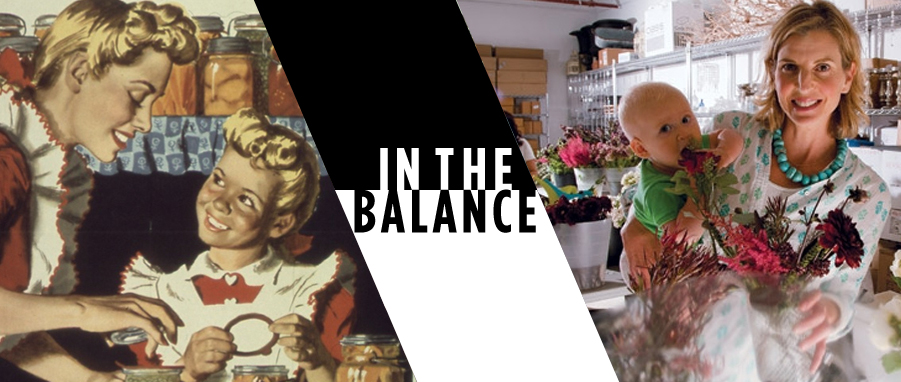‘I need a mental health day,’ I thought to myself in the late afternoon. This desperate impulse came after the last in a series of indignities, mounting responsibilities and frustrations surrounding work, travel and family. I was standing in line, waiting for coffee, when I realized my breathing was a little too shallow and my stomach was churning. My mind scrambled and slid over panicked thoughts of work that would get pushed forward yet another day. I clutched my iPhone in a death grip and it felt white-hot in my hand, having already recharged it once since pulling it from the wall eight hours earlier. DING, went the insistent alert tone, indicating another new email. When it occurred to me that I am my own boss and I could technically, literally fold the laptop closed and shut it all down for the day, I felt a glint of relief. Of course, if you ask any person who works for herself, you will hear about the sensation of near constant pressure and generalized anxiety that does not defer to the bounds of the hours between 9:00 AM and 5:00 PM. As you might expect, despite a clear recognition that I am suffering the ill effects of stress, I didn’t turn tail at that point and head back to the apartment. I persisted in working through the day and even felt some perverse sense of exhilaration knowing that I had beat back the creeping beast. There is apparently some distinction in ignoring the warning signs of a mind and body teetering on the brink of collapse.
While this may sound melodramatic, I am ripe for a break down. I tell you this not to burden you or try and arouse sympathy. I have a superb and dynamic support system. I say it because we all have to start taking better care of ourselves right this very minute. Most of you are like me and you don’t do it well enough---it might even be something that never enters your conscious thought. You might never have deliberately considered, ‘How am I doing?’
I was reminded this week---in the way you hope you never have to be---that life is invaluable and that the people living it are fragile. It can be a slippery slope from suffering the strains of the daily grind to taking your own life. When something like that happens, it feels irresponsible, disrespectful not to take a personal inventory. You owe it to yourself and the people that love you.
The Fundamentals (I am not a doctor. I am not a sleep expert. I am not a nutritionist. I am a clinical social worker, but mostly these reminders are derived from my personal investigation.):
1) Get enough sleep. I am averaging 5-6 hours these days and a grown adult needs more like 7-9. Even an hour or two less than your body requires can have devastating effects, including putting you at increased risk for a range of psychiatric conditions. Learn more about your sleep needs here.
2) Drink mostly water and lots of it. Stay hydrated. Your body uses water for everything and needs at least 8 glasses a day to run effectively. Sugary, caffeinated drinks do not count toward hydration (my delicious afternoon coffee notwithstanding) and often serve to dehydrate you.
3) Eat in a way that nourishes your body. Eat frequently – small meals with protein, fresh fruits and vegetables and complex carbohydrates. Eat what’s in season.
4) When you begin to feel overwhelmed in whatever domain in your life, stop and reprioritize. Figure out only what absolutely needs to be done. Then give yourself even more latitude with that short list.
5) If you are experiencing physical symptoms---headaches, stomachaches, short of breath, ruminating instead of sleeping---take immediate action. Take a day off, if you can. Consider yourself in a state of emergency and respond proportionally.
6) Reach out to others. Instead of caving inward, turn to those around you and ask for help. Particularly if you are person who is stoic or simply presents well under duress, you would be surprised to learn how few people close to you are aware of your struggle. This is partly true because each of us is so immersed in our own.
7) Talk to a professional. You and I and a million people like us can help de-stigmatize therapy. We can say out loud that we are vulnerable and benefit from added support. If you had heart disease, you would go straight to the cardiologist. If you are struggling with your emotional or mental health, why wouldn’t you go see a therapist?
I am going to get through this weekend’s big deliverables and then take some time for self-care and family travel. Just knowing I am going to do this with intention is already helping. I am also going to see my therapist when I get back, because why wouldn’t I? What could possibly be more important?

